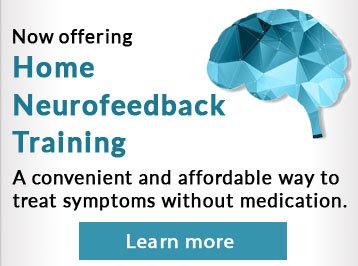Psychological Assessment for Children and Teens
At Behavioral Associates we offer a wide range of assessment packages. Different combinations of assessment procedures can be tailored to meet your child’s specific needs and goals.
Diagnostic and/or Treatment Planning
Assessing a child’s symptoms and level of functioning is an integral part of developing an effective treatment plan. The goal of a diagnostic assessment is to provide clinicians, parents, schools, courts, and/or other institutions with the information necessary to identify the best plan for each child. We also provide suggestions on implementation of these findings, whether through individualized therapeutic treatment at Behavioral Associates, intervention within the home, or referral to another facility. Anxiety, depression, ADHD, and a variety of other behavioral issues can be assessed in addition to the intellectual and/or neuropsychological measures in order to provide a balanced, comprehensive summary of your child’s needs.
*Affordable Testing – Monthly Community Clinic
Once a month, our Child and Adolescent Center offers affordable psychological testing to 3-5 patients. The testing is completed by our postdoctoral fellows and clinical externs, all working under the supervision of Dr. Heather Davidson. Appointments are made on a first come, first serve basis. Learn more.
Behavioral
A child’s behavior can be complex and confusing. At times it can feel impossible to pinpoint triggers for emotional outbursts, tantrums, and oppositional behavior. A behavioral assessment facilitates the identification of themes in behavior and provides treatment suggestions that include the home and/or school environment.
Learning Disabilities and School IEPs
Intelligence may be referred to as Intelligence Quotient (IQ), cognitive functioning, intellectual ability, aptitude, thinking skills or general ability. Intelligence testing is the estimation of a student’s current intellectual functioning through performance of various tasks designed to assess different types of reasoning.
Why is Intelligence Testing Important for Learning Disabled Students?
Federal Special Education Regulations usually require intelligence testing to confirm or rule-out the presence of mental disabilities and to establish IQ for the purpose of diagnosing a learning disability. Depending on the type of intelligence test administered, results may provide important information as to the way students approach problem solving. Properly interpreted, intelligence testing helps educators develop instruction and educational strategies for the development of a suitable Individualized Educational Plan (IEP).
IEP team meetings are an important part of your child’s special education program. Learning how to prepare for an IEP team meeting in advance is important for your active and effective participation. A psychologist or other trained evaluator is a necessary participant in the IEP process to provide a proper assessment, description, and devise a plan consistent with the child’s abilities and needs.
The IEP process can be overwhelming. At Behavioral Associates we do not just offer assessment services. We offer counseling and education throughout the entire process, including in depth preparation for each IEP team meeting you attend.
Child Custody
Child custody assessment includes a multitude of measures with the goal of determining what is best for a child experiencing parental separation or divorce. Both parents and children are interviewed and assessed so a recommendation can be made as to the optimal custodial arrangement based on anticipated levels of parental functioning.
Traumatic Brain Injury
In the case of head trauma with suspected brain injury dial 911 immediately, or contact your pediatrician. After an impact to the head, individuals with a brain injury may experience a variety of symptoms. When a TBI has been diagnosed, the Behavioral Associates’ Children’s Center can provide assessment of the level of damage and formulate a treatment plan.
This type of assessment is a specialized task-oriented evaluation of human brain-behavior relationships. Standardized testing methods are utilized in order to evaluate higher cognitive functioning and basic sensory-motor processes. This process includes a review of case history, hospital records and interview of the child and his/her family in order to best identify changes experienced since the injury. An important outcome of this testing is the interpretation of results, which are used as a basis of treatment planning for therapists, the child with brain injury, and the family.
Assessment of Childcare Providers
Identifying the best person to care for your child can be a daunting task. Assessment protocols may be beneficial for individual parents seeking more information on current and/or future nannies, babysitters, and any other childcare provider as well as for large organizations looking to implement a formalized screening process.


